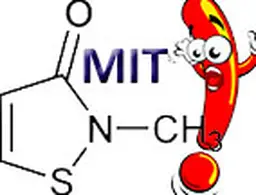
The problem of sensitive skin, whether irritable, reactive or intolerant, affects 1 in 2 women and 2 in 3 men. It is therefore a major challenge for cosmetics, but also a headache for formulators to develop products for their skins that are said to"bear nothing". Especially when it comes to conservation. Some ideas for reflection were given during the Scientific and Technical Exchange Day organised by Cosmed on 11 October.
In introduction of his intervention on the theme of the specificities of the conservation of products for intolerant skins, Dr Stéphane Pirnay, from Expertox (toxicological expert's office) recalled the role of preservatives: to fight against any micro-organism likely to deteriorate the cosmetic preparation. In doing so, they must also respect the microbial flora present on human skin in order to avoid skin intolerances or allergies. And that's the problem when it comes to preserving cosmetic products for sensitive skin.
While preservatives are essential to ensure the safety of the product, many are not without major disadvantages, which Dr. Pirnay has detailed as follows: - too powerful, they destroy all bacteria, even those that protect us; - too penetrating, they penetrate deeply into the skin; - too persistent, they remain in the body after entering it. And the expert to embark on the evocation of the main preservatives used, with their advantages and disadvantages.
Preservatives in conventional cosmetics
The most commonly used synthetic preservatives are also the most controversial, says Stéphane Pirnay. We find there: - halogenated substances, the most famous being Triclosan, - the aldehyde family like formaldehyde, - glycol ethers such as phenoxyethanol, - the paraben family such as …

















